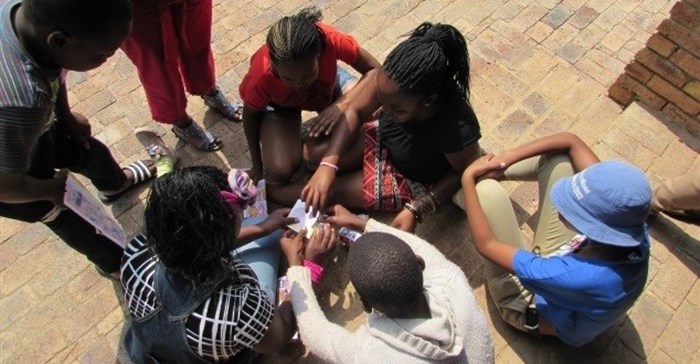
Top stories






More news












It also complained that communities and families are no longer supportive of each other. And finally, it is the fault of the youth themselves, who know their rights but not their responsibilities.
Well, it is easy to blame - but let blame be apportioned where it is due. Teenage pregnancy is something we are all concerned about - particularly when we hear reports, like the one from the Department of Basic Education in 2014, showing 20,000 teenage pregnancies recorded from South African schools, with 223 of these from primary schools. Add to this the fact that the statistic does not even reflect the one-third of teenage girls who don't carry their pregnancy to term, but opt instead for unsafe abortions.
Teenage pregnancy is a serious health and social problem. It has adverse effects on the education and employment prospects for the young woman, and is consequently also detrimental for the child.
According to the United Nations Population Fund, most causes that lead to teenage pregnancy are rooted in the development of the society, or lack thereof. In instances where poverty levels are high, there is a higher teenage pregnancy rate.
Gender imbalances of power is also a huge factor determining whether young women protect themselves or not against pregnancy (or HIV and STD infection). The gender imbalances in intimate relationships make it difficult for young women to decide when, if at all, to have children as well as how many they may want to have. Men exert control over women's bodies.
If a woman is in a relationship, living with an older partner and economically dependent on that partner, she tends to forego the power of birth control. This lack of power is more severe in circumstances where she is being physically, sexually or emotionally abused. Would you like to know how often that happens? One in two South African men admit to physically abusing their partners.
Finally, clinics are not youth friendly - in fact young women in the townships where we work (Mfuleni, Delft, Orange Farm, Alexandra, Hillbrow and Diepsloot) all report that nurses treat them with disrespect and condescension when they seek sexual and reproductive health services.
The reports we receive are that clinic staff stigmatise and gossip about young people when they do report. Clinics do not take patients after school hours. Young men and women do not know where to go when they get unsatisfactory services from government agencies.
Finally, health care workers do not understand the challenges young women face - for example in negotiating sex, condom use and abortions. They don't understand that when a girl dates an older man it is often in order to provide for her family. The inevitable drop-out of pregnant teens from school leads to an ostracised generation, lacking opportunities for growth.
So is it true that teen pregnancy is here to stay because schools don't teach Bible Studies? In our opinion, what we need is an understanding of the equal value of women, their right to self-determination and their sexual and reproductive health rights. Without that understanding, it will do no good teaching the Bible. We must also appreciate that the question of religious belief is a freedom which is protected by our Constitution.
With regard to teenage pregnancy being seen as an issue of 'unsupportive communities' - we believe that the dissolution of families and communities in South Africa is indeed a grievous matter. The levels of crimes committed by family members, intimate partners and people known to the victim have always been far higher than crimes committed by strangers.
This is particularly true for gender-based violence. But is it really fair to blame communities and the family unit? The pressure on the family and the community, particularly in townships is immense - in fact, it's unsustainable.
It isn't only poverty, its social inequality. It is the impact of the burden of disease (HIV, TB, mental illness, etc.), urban migration, impunity for crime, and lack of access to crucial rights-related services, such as justice and security, health, nutrition and social services. As a nation, we often focus on the negative, whereas there are many instances where there is evidence to the contrary.
Take the story of Mr. Mabasa from Alexandra. The man survives on a disability grant he got as a result of an accident he had in 2009. With his disability grant of R1,410 a month, he takes care of his sister's seven children. There is no child support grant, and the mother is nowhere to be found.
Heroism like that is an untold story - and I can give you many more stories like that, of people who come to the Afrika Tikkun Centres in Johannesburg and Cape Town - caregivers who are sometimes not even related to the children they are taking care of. For no other reason than kindness. In our economic climate, where a loaf of bread costs between R8 and R10 and a litre of milk the same, they use their meagre grant to somehow keep the most vulnerable alive.
At Afrika Tikkun, we feed people like this daily, giving food parcels, and donations of clothes and blankets. It is our experience that in these communities, there are unsung heroes on every street, who by their 'weak' efforts of a small grant (and all the help that organisations like ours can give), hold together the threads of a society straining under unimaginable pressures.
Finally, do youth care more about their rights than their responsibilities? If we took time to understand the youth, their needs, their emotions and their desires, perhaps we could find the answers we are looking for, and maybe start seeing the changes we would like to see.
For example, although pregnancy rates of women, under the age of 18, is at a national average of 7.8%, the Western Cape has succeeded in bringing the percentage down to 4.4%, through making clinics youth friendly service points.
Here in Johannesburg, in the townships where we are active, young women (some of them teen mothers) are tirelessly lobbying and working hand in hand with government clinics to make them youth friendly.
It is that simple. Teenage pregnancy is not here to stay. Hearing and understanding the youth, and then giving them the power to respond to the real problems, is the solution. If embraced, it will bring teenage pregnancy rates down.
